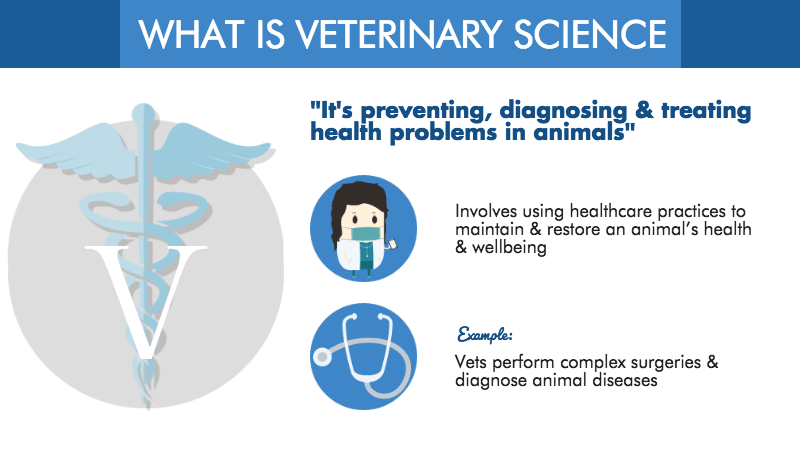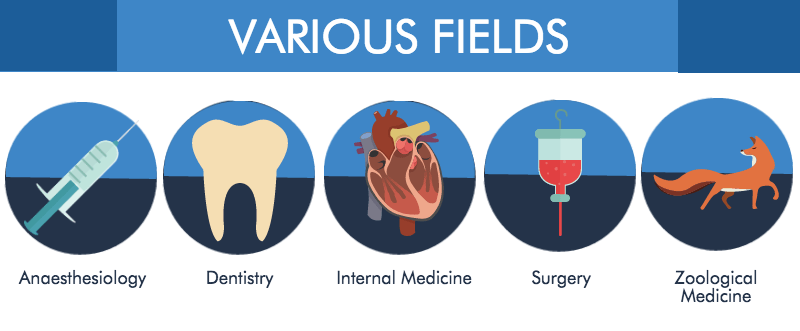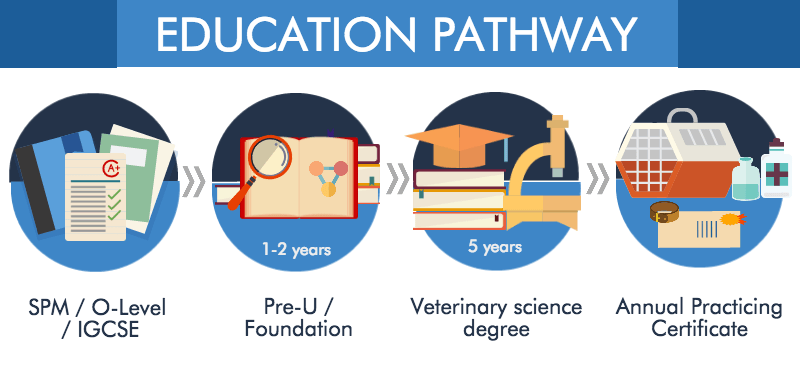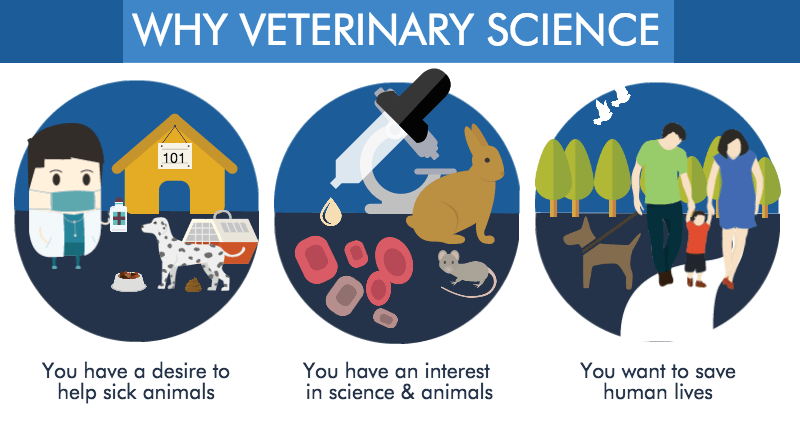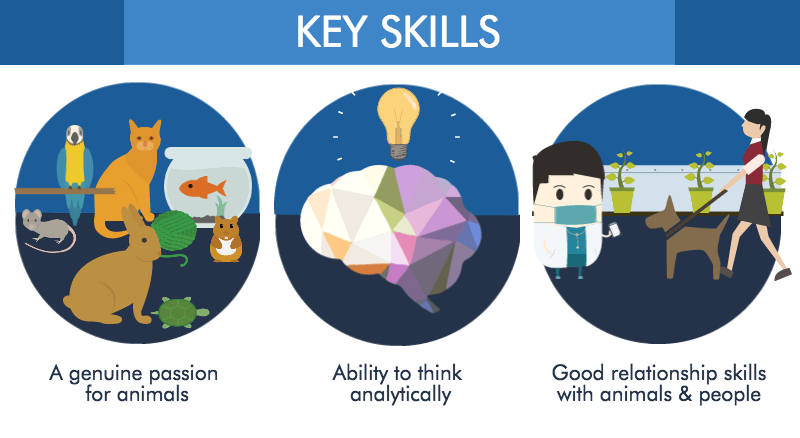The Complete Guide to Studying Veterinary Science in Malaysia
Wonder what universities offer veterinary science course in Malaysia? We got you. Entry requirements and fees comparison at the tip of your fingers.
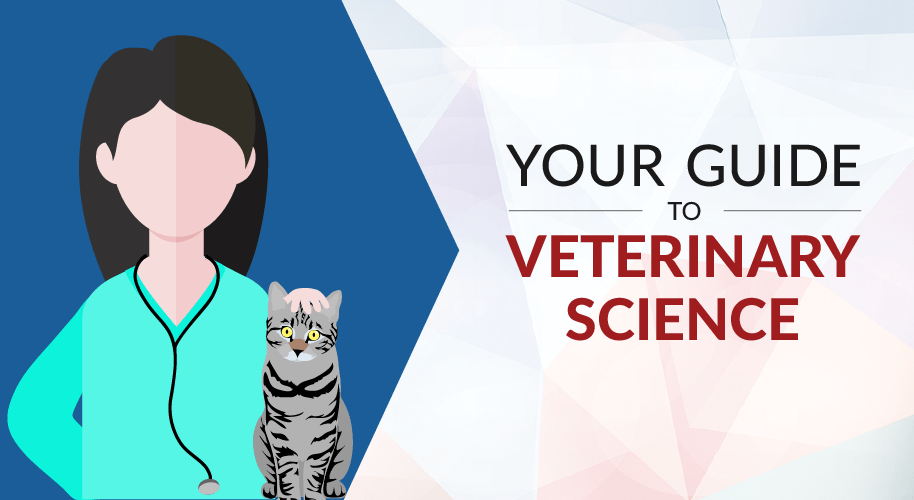
Have you always imagined yourself treating animals when they are sick and injured? Are you fascinated with the study of animals and their well-being?
If so, you might want to consider a degree in Veterinary Science!
This guide will explore why you might want to consider studying a Veterinary Science course in Malaysia, what you can learn from studying this course and your career options after your degree.

TMC College
Foundation in Science
✓Direct pathway to medicine and veterinary science degrees in over 20 universities abroad
#1. The Basics of Veterinary Science
a) What is Veterinary Science
Veterinary Science relates to preventing, diagnosing and treating health problems in a wide variety of animals, from family pets and livestock to laboratory animals and animals in the wild.
People who study Veterinary Science often go on to be veterinarians, who are essentially animal doctors.
When an animal is sick or unwell, a veterinarian (or commonly known as a vet) performs an examination to find out the cause of the illness (also known as “diagnosis”). The vet then gives suitable treatments in order for the animal to recover.
b) What Are the Various Fields of Veterinary Science?
Much like in the human world, there are various specialties within Veterinary Science. Here are some major areas within Veterinary Science:
| Field | What It Is All About |
|---|---|
|
Anaesthesiology |
Pain relief for animals |
| Dentistry | Dental care for animals |
| Dermatology | Diseases and conditions of the skin |
| Internal medicine | Diagnosis and treatment of illnesses, such as cardiology (heart), neurology (brain) and oncology (cancer and tumours) |
| Nutrition | Ensures animals’ diets meet their body’s requirement for nutrients |
| Pathology | Deals with causes & nature of diseases through lab examinations (e.g. autopsies) |
| Surgery | Deals with injuries and disorders that require surgical intervention |
| Zoological Medicine | Care of zoo animals, wildlife and aquatic animals |

#2. Studying a Veterinary Science Degree
a) What Qualifications Do You Need?
In order to pursue a degree in Veterinary Science, you will generally need:
- SPM / O-Levels: Minimum of 5Bs, including English and Mathematics
b) What Are the Requirements to Study Veterinary Science?
These are the general entry requirements to pursue a Degree in Veterinary Science:
- A-Level: Minimum 2Bs, including Biology, Mathematics, Physics or Chemistry
- STPM: Minimum CGPA 3.50 and a B in Biology, Mathematics, Physics or Chemistry
- Asasi or Matrikulasi: Minimum CGPA 3.50 and a B in Biology, Mathematics, Physics or Chemistry
In addition, you're also required to undergo and pass an interview as part of the prerequisite to study veterinary science.
NOTE
Entry requirements may vary depending on university, so make sure you do your research!
b) How Long Is a Veterinary Science Degree?
A Veterinary Science degree in Malaysia is 5 years long.
Once you have completed your degree in Veterinary Science, you can apply to be a registered veterinary surgeon with the Malaysian Veterinary Council. Thereafter, you will need to apply for an Annual Practicing Certificate (APC) to enable you to practice veterinary medicine in Malaysia.
PRO TIP
Make sure your degree in Veterinary Science is recognised by the Malaysian Veterinary Council. Otherwise, you may risk not being able to practise veterinary medicine in Malaysia.
Here is a summary of your education pathway.
c) What Will You Study in a Veterinary Science Degree?
A Veterinary Science degree will give you the knowledge and skills required to diagnose and treat animals. Some of the subjects that you may learn include:
- Animal Anatomy
- Animal Biochemistry
- Animal Diseases (Ruminant, Avian, Equine, Swine, Aquatic)
- Animal Genetics
- Animal Nutrition
- Anaesthesiology
- Bacteriology and Microbiology
- Epidemiology
- General Surgery
- Pathology
Throughout your degree, you will be required to carry out practical training. This could involve stints at various places, such as livestock farms, places with non-livestock animals such as zoos, SPCA and wildlife sanctuaries, as well as vet clinics.
Remember that studying for a Veterinary Science degree is not easy as it involves a lot of analytical skills.

TMC College
Foundation in Science
✓Direct pathway to medicine and veterinary science degrees in over 20 universities abroad
#3. Why Should You Study For a Veterinary Science Degree?
Veterinary Science can be extremely rewarding for those who have a passion for animals. Here are some of the top reasons why you should study a Veterinary Science degree.
(a) You have a strong desire to help sick animals
The heart of veterinary medicine involves caring for and treating sick animals. As an animal doctor, it will be your responsibility to look after the welfare of animals. If you are passionate about making a difference to the lives of animals, a Veterinary Science degree might just be the career for you!
(b) You have a keen interest in science and animals
A Veterinary Science degree will equip you with scientific knowledge of the care and well-being of a wide range of animals, from family pets to livestock and wildlife. You will learn the intricacies of how animals function and their conditions, and it can be extremely fascinating if you are someone who is passionate about animals.
(c) You want to save human lives
Veterinary Science doesn’t just deal with animals. It also deals with the discovery, prevention and control of animal diseases. Certain infectious diseases, such as bird flu, can spread from animals to humans. As a vet, you can be on the forefront of fighting animal diseases through discovery and research, saving the lives of not just animals but humans too!

#4. What Skills Do You Need to Study Veterinary Science?
Here are some of the key qualities and skills that you will need to develop in order to do well in a Veterinary Science degree.
(a) A genuine passion for animals
Having a passion for animals and their well-being (not just your family pet, but also other species including farm animals and wildlife) is extremely crucial. You will be dealing with all sorts of animals during your degree and in your career as a vet, so you must be empathetic to their pain, discomfort and problems.
(b) Ability to think analytically and solve problems
A Veterinary Science degree will expose you to lots of lab work and clinical practice. You will be expected to deduce and diagnose an animal’s condition, as well as administer treatments. In order to do that, you must be able to think analytically and have strong problem-solving skills.
(c) Good relationship skills with animals and people
Unfortunately, animals don’t speak English and won’t understand what you’re saying when you need them to listen to you. You must be able to manage your relationship with animals to assure them that you are not there to harm them. As a vet, you will also need to know how to communicate effectively with animal owners, such as giving medication instructions or explaining difficult decisions like euthanasia.
#5. Career Options with a Veterinary Science Degree
A degree in Veterinary Science will allow you to pursue the following career options:
- Veterinary Surgeon
- Veterinary Scientist
- Veterinary Pathologist
- Livestock Inspector
- Livestock Veterinarian
- Laboratory Animal Veterinarian
- Marine Biologist
- Pharmaceutical Researcher
- Zoological / Wildlife Veterinarian

TMC College
Foundation in Science
✓Direct pathway to medicine and veterinary science degrees in over 20 universities abroad
#6. Where Can You Study Veterinary Science Degree in Malaysia?
The most important thing when studying a degree in Veterinary Science is to ensure that your institution is recognised by the Malaysian Veterinary Council. If your degree isn't recognised, you risk not being able to practice veterinary medicine in Malaysia.
Here are some universities for Veterinary Science in Malaysia.
TMC College
Kuala Lumpur Campus, Kuala Lumpur
Intake
Mar, Aug
Tuition Fees
RM5,000
